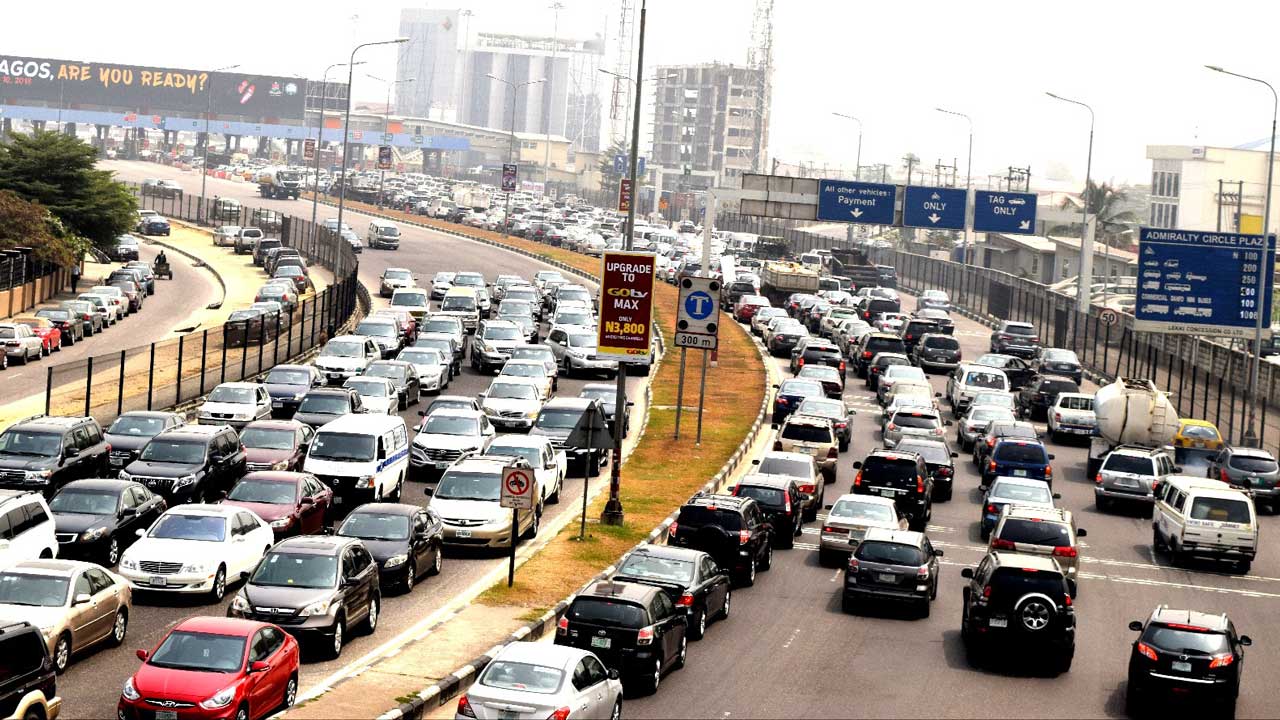
Ibeju Lekki in the Ibeju Lekki Local Government Area, southeast of Lagos, is home to the Lagos Free Trade Zone(LFTZ). A Free Trade Zone is an area within which goods may be landed, handled, manufactured or reconfigured, and re-exported without the intervention of Custom authorities.
The zone is a region where a group of countries have agreed to reduce or eliminate trade barriers, the basic objective being to enhance foreign exchange earnings, develop export-oriented industries and generate employment opportunities for the host country.
The Lekki Free Trade Zone is a major catalyst for the development of Lagos state and it came about as a result of collaboration between Chinese and Nigerian governments.
The emerging traffic chaos the Lekki Free Trade Zone, which arguably is the new business face of Lagos, may hunt Lagos for a long time to come, unless the government does something urgently.
The Lekki Free Zone covers a total area of about 155 square kilometres and is about 50km from the city center. It currently plays host to
Facing the Atlantic Ocean in the south and bordering with Lekki Lagoon in the north, Lekki Free Trade Zone has easy access to the Western African market of about 300 million population and the European and USA market with a population of about 600 million.
Arguably, the biggest investment in the Lekki Free Trade Zone is the Dangote Refinery and Petrochemical plant. The Dangote refinery which is the largest single line refinery in the world has a processing capacity of 650,000 barrels of oil per day while the gas pipeline project, according to Dangote, “is meant to supply 3 billion cubic feet of gas daily to Lagos and its axis which can guarantee uninterrupted power supply in Lagos on completion as it will generate 12,000 megawatts of power”.
No doubt, since the Lekki Deep Seaport commenced operations, vehicular traffic has risen exponentially. There is a huge number of articulated vehicles loaded with containers at the inward and outward journey in the axis.
Already, residents and commuters are feeling the brunt of the pains of huge traffic, even though the management of the port have been making do with an alternative mode via the use of barges.
The size and types of barges that are required for the waters at Lekki port are not quite available. Only few barge operators can fit it. This limits the option of freighting of containers from the port by waters.
The recent announcement by Dangote refinery that the company would start loading premium motor spirit (PMS, otherwise called petrol at the refinery this month, will no doubt add to the woes of residents, business owners and commuters in that part of Lagos.
We are worried that, despite the planned commencement of loading of PMS, there is no concrete or convincing arrangements in place regarding control of trucks.
Our fear is that, once loading of PMS begins, there may be a repeat of the trauma that enveloped the port city of Apapa for more than 15 years.
If trucks must load PMS at Dangote refinery, then there is no alternative to the use of electronic call-up system.
If what was experienced in Apapa is anything to go by, Dangote refinery ought to emplace a good truck call-up system, even before the commencement of loading.
This will require the cooperation of the Lagos state government. We are aware that a few months ago, the State Government and a private entity; Traffic Management System; who are the promoters of the Call Up Technology in the new free trade zone, went to town with a deal to deploy electronic call up system for trucks on the Lekki – Epe axis with a view to managing the traffic that is already building up along that port corridor.
We are surprised that, even after a stakeholders meeting, which was held at the office of the Lekki Free Zone Development Company, and which was attended by the Lagos State Commissioner for Transport, Mr. Seun Osiyemi, nothing tangible has been achieved in that direction.
The state government had acknowledged that already these articulated vehicles have started indiscriminate parking on both sides of the road already overstretched road.
Even though the state has said that it was considering using the waterways to evacuate bulk, dry and liquid from the Lekki port, we are of the opinion that, a comprehensive master plan involving the use of all modes of transportation and the use of truck call up system is the ultimate in the Lekki axis.
It is projected that the in the Lekki free trade Zone, oil and gas alone will generate about 40.2million metric tons of cargoes annually, and that while the roads will take 52 percent of the cargoes exiting the port, waterways will take 22 percent and the proposed rail will evacuate cargoes another 22 percent of volumes.
This data-based projection, further amplifies the need for electronic management of articulated vehicles that will commute to and from the Lekki trade zone daily.
From the Apapa- Tin Can port experience, it is certain that multi modal transportation system is the solution.
This will be effective if all stakeholders are carried along. Such stakeholders include the operators and owners of the various businesses in the free trade zone, the state government and the road haulage unions. We are yet to see any noticeable collaboration between these interests.















